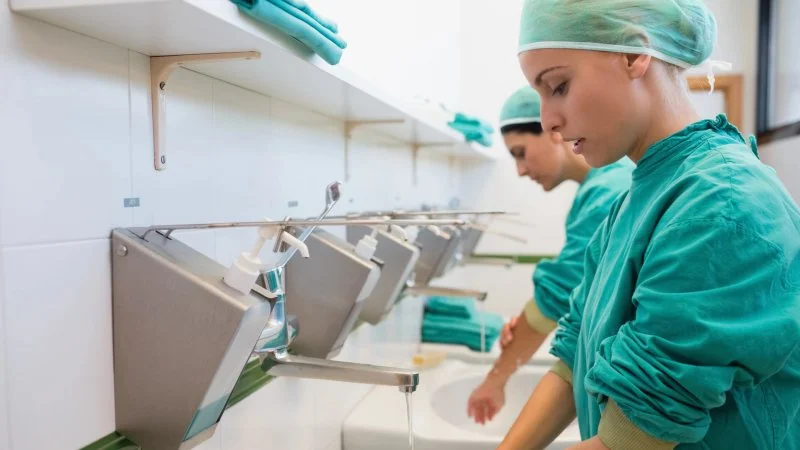Training Healthcare Staff on Water Quality and Safety Standards

Maintaining clean water in healthcare facilities is paramount to protecting both patients’ well-being and facility operations, with its quality directly impacting treatments, patient safety, and overall patient care. Legionella water sampling can play an integral part in assuring water safety; among many methods used to do this is Legionella sampling which detects harmful bacteria before they pose serious threats. Staff training must focus both on these standards as well as safety practices to safeguard both operations as well as patients alike.
When billing for extended patient visits, understanding Time-based coding 99204 is essential. This code reflects visits that include 45-59 minutes of total time spent with a patient. Accurate documentation ensures proper reimbursement and compliance, especially when differentiating between time-based and medical decision-making-based codes in clinical scenarios.
Understanding Water Quality Issues
Water quality problems can stem from a variety of sources, leading to the contamination of drinking water and healthcare settings. Potential sources may include aging infrastructure, improper maintenance practices, or environmental influences. Moreover, bacteria, heavy metals, and various pollutants have all been known to infiltrate healthcare water systems, posing unique health risks.
In particular, heavy metals can pose the possibility of toxic build-up within our bodies, while pollutants could contribute to acute or chronic illnesses, requiring effective safety measures for mitigation. Therefore, healthcare water systems must thoroughly understand both the nature and source of contaminants in order to implement effective safety measures against them and minimize risks effectively.
One major concern among contaminants is Legionella bacteria. These bacteria have long been associated with severe respiratory infections in vulnerable populations, such as the elderly, those suffering from chronic illnesses, or those with compromised immune systems. Furthermore, the risks can rapidly escalate in settings like hospitals and long-term care facilities, where vulnerable individuals congregate. As a result, it is critical that careful water quality monitoring and management prevent the proliferation of these dangerous pathogens.
The Need for Staff Training
Staff training on water quality management is vitally important. First, such instruction helps staff raise awareness of potential quality problems with drinking water while equipping them with the knowledge necessary to identify and address such obstacles effectively. Additionally, understanding the risks associated with polluted waters enables healthcare personnel to remain diligent when monitoring practices are being carried out and act quickly when abnormalities are noticed within a facility’s water supply – thus contributing greatly towards safeguarding its integrity.
Furthermore, effective training programs cover numerous topics thoroughly. This should include an in-depth exploration of the water quality standards and regulations healthcare facilities must abide by. Awareness of this knowledge enables staff members to understand both the legal and ethical implications associated with water management.
Moreover, methods for proactively monitoring water quality, including Legionella water sampling, should also be covered, as this allows healthcare facilities to promote a proactive safety culture that reduces the risks of contamination while improving patient care overall.
Implementing Effective Training Programs
Implementing successful training programs requires extensive planning and coordination at healthcare facilities.
First, key stakeholders, such as infection control specialists and facility managers, should assist in creating the curriculum. Existing resources like online courses or workshops led by water quality experts may further enrich this experience.
Next, practical exercises should be integrated into training sessions. This allows staff to apply their knowledge in real-world settings. For example, by conducting mock water quality tests, staff can gain hands-on experience monitoring methods and foster a greater understanding of the processes required in providing clean water supplies.
Additionally, attentive education is paramount. As water quality standards and regulations change over time, healthcare staff need regular updates. This ensures they remain informed about new practices and technologies that may impact water quality management. Continuous learning keeps staff abreast of effective methods.
Benefits of Well-Trained Staff
Well-trained healthcare staff play an invaluable role in water quality management. Armed with knowledge about potential water quality problems, staff can detect and address them before they escalate – helping prevent major disruptions while simultaneously safeguarding patient wellbeing.
Well-trained staff play an invaluable role in creating an atmosphere of safety at their facility. When employees feel confident with monitoring and controlling water quality, an environment in which safety takes priority emerges that not only boosts operational efficiency but also boosts morale as staff feel empowered to make an impactful difference in patient care.
Water quality standards have an indirect correlation to patient health outcomes; when staff effectively manage water quality standards it helps mitigate risks associated with polluted waters and can mitigate associated risks. Furthermore, trained healthcare staff is essential in ensuring both patient safety and facility operations by making sure water systems operate optimally, protecting both themselves as well as their patients from contamination risks.
Conclusion
Training healthcare staff on water quality and safety standards is more than a regulatory obligation: it plays an integral part in providing patients with safe environments. Healthcare facilities should equip their staff with knowledge about monitoring techniques, Legionella water sampling protocols, and their significance – to achieving high water quality standards within their facilities and maintaining superior patient health outcomes.
Ti potrebbe interessare:
Segui guruhitech su:
- Google News: bit.ly/gurugooglenews
- Telegram: t.me/guruhitech
- X (Twitter): x.com/guruhitech1
- Bluesky: bsky.app/profile/guruhitech.bsky.social
- GETTR: gettr.com/user/guruhitech
- Rumble: rumble.com/user/guruhitech
- VKontakte: vk.com/guruhitech
- MeWe: mewe.com/i/guruhitech
- Skype: live:.cid.d4cf3836b772da8a
- WhatsApp: bit.ly/whatsappguruhitech
Esprimi il tuo parere!
Ti è stato utile questo articolo? Lascia un commento nell’apposita sezione che trovi più in basso e se ti va, iscriviti alla newsletter.
Per qualsiasi domanda, informazione o assistenza nel mondo della tecnologia, puoi inviare una email all’indirizzo [email protected].
Scopri di più da GuruHiTech
Abbonati per ricevere gli ultimi articoli inviati alla tua e-mail.
